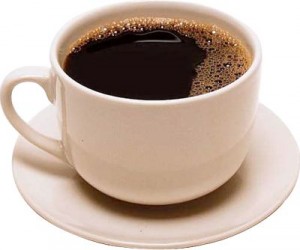
It could be that you’ve been advised to drink your coffee, green tea or other drinks with caffeine to lose weight more effectively. Moreover, you’ve probably noticed that caffeine is as an ingredient widely present in many popular diet pills. And for good reason. This is due to the fact that caffeine is one of the few substances known to help mobilize fats from the fat tissues and increase metabolism. But the question remains – can caffeine help you lose weight? Does it really have potential to burn fat and if that is the case, when should you take it in order to get the best possible results?
What makes caffeine special?

Caffeine stimulates the central nervous system, it blocks Adenosine in your brain, and by doing so increases release of Dopamine. Fat cells begin breaking down fat. Another thing is that caffeine increases our blood levels of the hormone Epinephrine, which is also known as Adrenaline. Epinephrine travels through the blood, to the fat tissues and send signals to break down fats and release them into the blood. This is how caffeine helps to mobilize fat from the fat tissues, making it available for use as free fatty acids in the blood.
Can caffeine help you lose weight?

There are many studies on effects of caffeine on fat and weight loss. It may slightly boost weight loss or prevent weight gain, can reduce your desire to eat for a while and may stimulate calorie burning. The conclusion can be reached that it really can help you lose weight. However, the results show that caffeine alone cannot do wonders. You have to work hard to get good results. Caffeine can only help you along the way. The most compelling evidence, in my opinion, for caffeine use enhancing fat loss is actually through its effects on exercise performance. What I am trying to say is that, basically, you work more and therefore you burn more fat. Essentially, after taking caffeine, you generally have an increased athletic performance capacity. Caffeine gives you energy to work more than those who workout without taking it.
How much should I take?
If you drink coffee, you probably have (high) tolerance for it. What you could do is try not to drink coffee for a while. That way, even a small amount of caffeine will be effective. As a starting point, try taking caffeine on an empty stomach about an hour before training. You may want to start with 100 milligrams to see how it goes, then up your intake to 200 milligrams. You can then increase the dose by 50 milligrams if you’re still not feeling any effects. If you find your performance in the gym is better after taking caffeine there is little reason to alter your approach. On the other hand, if you notice no change in performance whatsoever, you will either want to adjust your dose and/or manipulate the dose timing.
Coffee has considerably more caffeine than tea or chocolate and different coffee brands and even different roasts have varying levels of caffeine, so it’s difficult to say for sure exactly how much caffeine is in each cup. It’s easy to find caffeine in pill form or in a standardized liquid since supplements are even available online. So, if you’re just drinking coffee or eating chocolate, I’d say you can’t be too specific about the amount of caffeine you’re actually getting. Also remember that some drinks, such as specialty coffees, are high in calories and fat. So instead of losing weight, you might actually gain some if you drink too many of these.


Leave a Reply